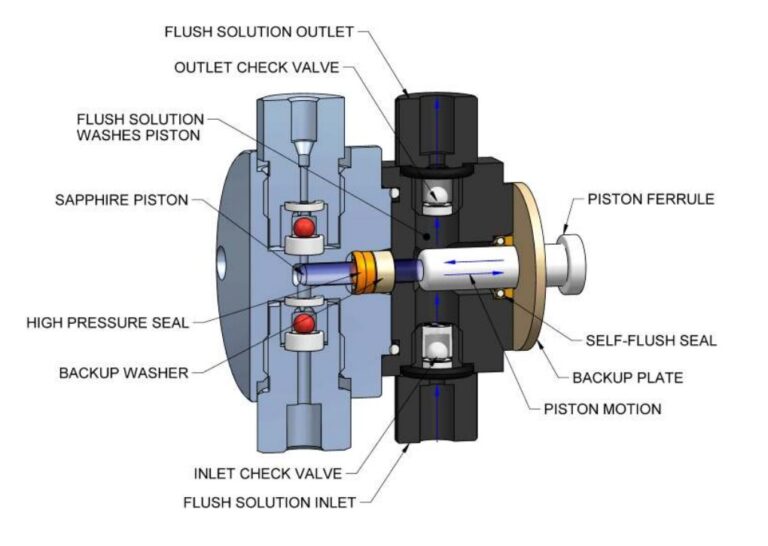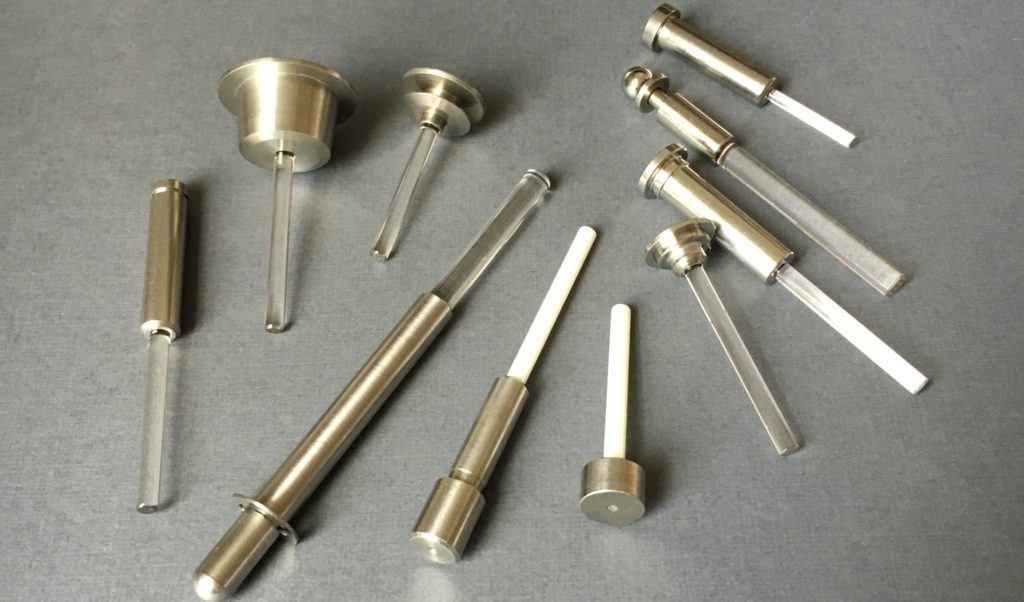Home / Life Science
We develop and manufacture hard materials that enable our customers precise fluidic control and measurement in the Life Science Market
The Challenge
Life science encompasses a wide array of technologies that facilitate research, analysis, and applications across its various branches. Some of the prominent technologies in life science include Genomic Sequencing and Analysis, Microscopy, Mass Spectrometry, Invitro Diagnostics, Biotechnology, Analytical Instrumentation, Chromatography and other Bioinformatic technologies.
Chromatography is an integral part of life science research and applications. Chromatography is a technique used to separate and analyze complex mixtures, making it incredibly valuable in various fields within life science. Chromatography is extensively used as a separation technique in biochemistry, pharmacology, drug development, clinical diagnostics, and environmental science. Chromatography methods come in various forms like gas chromatography (GC), liquid chromatography (LC), high-performance liquid chromatography (HPLC), and thin-layer chromatography (TLC), among others. These techniques are versatile, allowing scientists to separate, identify, and quantify components within complex mixtures—a critical aspect of many life science applications.
In the science of separation, also known as chromatography, chemical stability, hardness, and inertness are desirable attributes for materials used in the instrument. See figure #1 for and HPLC Pumphead cutaway.
The Solution
Synthetic sapphire’s properties make it suitable for chromatography applications. Sapphire is highly resistant to chemical attack, providing a stable surface for chromatographic separations. It doesn’t react with most solvents or compounds, ensuring minimal interference with the separation process. Sapphire is extremely hard and durable, which means it can withstand high pressures, ensuring the stability of the chromatographic columns during operation. Its inert nature prevents interactions with analytes, making it useful for separating compounds without unwanted chemical interactions.
The Benefit
Synthetic sapphire, known for its hardness, chemical inertness, and resistance to wear and corrosion, is utilized in chromatography pumps for its suitability in critical components like pump check valves and pistons. These pumps, especially in high-pressure liquid chromatography (HPLC) systems, require materials that can withstand high pressures, provide a tight seal, and maintain stability over extended periods.
Here’s how synthetic sapphire is used in chromatography pumps:
Pistons: In some high-pressure pumps, the pistons are made from synthetic to reduce friction, increase durability, and ensure smooth movement within the pump chamber. Sapphire’s hardness minimizes wear on the piston, contributing to the longevity of the pump. See figure #2 for piston examples.
Check Valves: Synthetic sapphire may also be used in check valves within chromatography pumps. These valves help control the direction of flow and prevent backflow. Sapphire’s inertness and resistance to corrosion make it a suitable material for these critical components.
The use of synthetic sapphire in chromatography pumps contributes to their reliability, durability, and performance under high-pressure conditions. It helps maintain the integrity of the chromatography system and ensures accurate and consistent separations during analytical processes.
At Analytical Components LLC, we focus on the critical finishing, processing and fitment of precision hard materials that are important for our customer applications. Our experience with utilizing ultra hard materials like ceramics in combination with a variety of ferrule materials has allowed us to manufacture piston assemblies for some of the most demanding metering applications.
Figure #1 High Performance Liquid Chromatography (HPLC) Pumphead

Figure #2 (Various HPLC piston designs)

